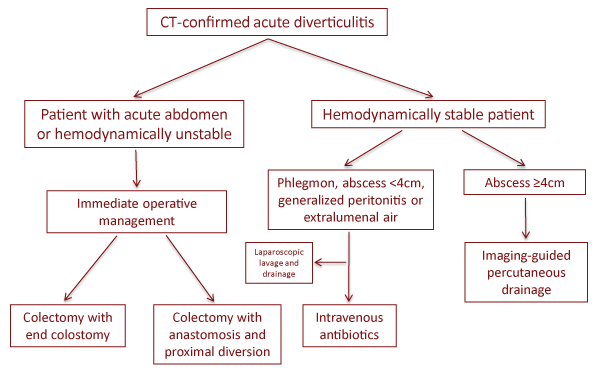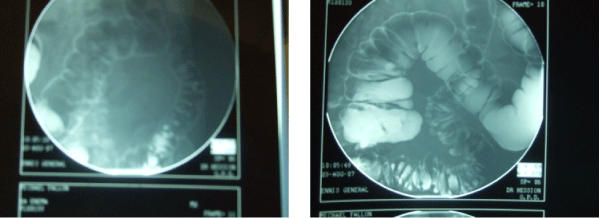Diverticular disease, often abbreviated as DD, is a common gastrointestinal condition that affects millions of people worldwide. It primarily involves the development of small pouches or sacs in the walls of the digestive tract, most commonly in the colon. While many individuals may never experience symptoms, others may face discomfort, pain, or complications that require medical attention. This article explores the causes, symptoms, and treatments of this condition to help you better understand its impact on health.

What Is Diverticular Disease?
Diverticular disease refers to the presence of diverticula, which are small bulging pouches that can form in the lining of the digestive system. These pouches are typically found in the large intestine, also known as the colon. When these pouches become inflamed or infected, it leads to a condition called diverticulitis, which is a more severe form of the disease.
There are two main types of diverticular disease:
- Diverticulosis: This is the presence of diverticula without inflammation or infection. Many people with diverticulosis do not experience any symptoms and may only discover the condition during routine medical examinations.
- Diverticulitis: This occurs when the diverticula become inflamed or infected, leading to pain, fever, and other symptoms. Diverticulitis requires prompt medical treatment to prevent complications.
Causes of Diverticular Disease
The exact cause of diverticular disease is not fully understood, but several factors contribute to its development. These include:
Dietary Factors
A diet low in fiber is considered one of the primary risk factors for developing diverticular disease. Fiber helps soften stool and promotes regular bowel movements, reducing pressure within the colon. Without adequate fiber, the colon must work harder to move waste through the digestive tract, which can lead to increased pressure and the formation of diverticula.
Aging
As people age, the walls of the colon naturally weaken, making them more susceptible to the formation of diverticula. This is why diverticular disease is more common in older adults, particularly those over the age of fifty.
Lifestyle Factors
Certain lifestyle habits can increase the risk of developing diverticular disease. These include:
- Lack of Physical Activity: Regular exercise helps maintain healthy digestion and reduces pressure on the colon.
- Obesity: Excess weight can place additional strain on the digestive system, increasing the likelihood of diverticula formation.
- Smoking: Smoking has been linked to a higher risk of diverticulitis due to its negative effects on overall health and inflammation levels.
Genetic Predisposition
Some individuals may have a genetic predisposition to developing diverticular disease. If a close family member has been diagnosed with the condition, your risk may be higher.
Symptoms of Diverticular Disease
The symptoms of diverticular disease vary depending on whether the condition is diverticulosis or diverticulitis. In many cases, diverticulosis does not cause noticeable symptoms, while diverticulitis often presents with more severe signs.
Symptoms of Diverticulosis
Many people with diverticulosis are asymptomatic, meaning they do not experience any symptoms. However, some individuals may notice mild discomfort or changes in bowel habits, such as:
- Bloating
- Mild abdominal cramps
- Constipation or diarrhea
Symptoms of Diverticulitis
Diverticulitis is characterized by inflammation or infection of the diverticula, leading to more pronounced symptoms. Common signs of diverticulitis include:
- Severe abdominal pain, usually on the lower left side
- Fever and chills
- Nausea and vomiting
- Changes in bowel habits, such as constipation or diarrhea
- Tenderness in the abdomen
- Bleeding from the rectum (in rare cases)
Complications of Diverticular Disease
If left untreated, diverticular disease can lead to serious complications. These include:
Abscess Formation
An abscess is a collection of pus that can form near the inflamed diverticula. Abscesses may require drainage or surgical intervention if they do not respond to antibiotics.
Perforation
In severe cases, the wall of the colon may rupture, leading to perforation. This allows bacteria from the colon to enter the abdominal cavity, causing a life-threatening condition called peritonitis.
Fistula Development
A fistula is an abnormal connection between two organs or between an organ and the skin. In diverticular disease, fistulas often form between the colon and the bladder or other nearby structures.
Bowel Obstruction
Scarring from repeated episodes of diverticulitis can narrow the colon, leading to partial or complete bowel obstruction. This condition requires immediate medical attention.
Diagnosis of Diverticular Disease
To diagnose diverticular disease, healthcare providers rely on a combination of patient history, physical examination, and diagnostic tests. These may include:
Medical History and Physical Examination
Your doctor will ask about your symptoms, dietary habits, and family history. During the physical exam, they may press on your abdomen to check for tenderness or swelling.
Imaging Tests
Several imaging tests can help confirm the presence of diverticula and assess their severity:
- CT Scan: A computed tomography scan provides detailed images of the colon and surrounding tissues, helping identify inflammation, abscesses, or perforations.
- Colonoscopy: This procedure involves inserting a flexible tube with a camera into the colon to examine its lining. Colonoscopy is typically performed after an episode of diverticulitis has resolved to rule out other conditions like colorectal cancer.
- Barium Enema: A contrast material is introduced into the colon to highlight abnormalities on X-rays.
Treatment Options for Diverticular Disease
The treatment approach for diverticular disease depends on the type and severity of the condition. Treatment options range from lifestyle modifications to surgical interventions.
Treatment for Diverticulosis
Since diverticulosis often causes no symptoms, treatment focuses on preventing complications. Key strategies include:
- Increasing Fiber Intake: Consuming a high-fiber diet rich in fruits, vegetables, whole grains, and legumes can promote healthy digestion and reduce pressure in the colon.
- Staying Hydrated: Drinking plenty of water supports proper bowel function and prevents constipation.
- Regular Exercise: Engaging in physical activity helps stimulate intestinal motility and reduces the risk of diverticula formation.
Treatment for Diverticulitis
Diverticulitis requires more aggressive treatment to manage inflammation and prevent complications. Options include:
- Antibiotics: Oral or intravenous antibiotics are prescribed to treat infections associated with diverticulitis.
- Pain Management: Over-the-counter pain relievers, such as acetaminophen, can help alleviate discomfort. Avoid nonsteroidal anti-inflammatory drugs, as they may irritate the digestive tract.
- Liquid Diet: During acute episodes, a clear liquid diet may be recommended to allow the colon to rest and heal.
- Hospitalization: Severe cases of diverticulitis may require hospitalization for intravenous fluids, antibiotics, and monitoring.
Surgical Treatment
In cases where diverticulitis recurs frequently or leads to complications, surgery may be necessary. Surgical options include:
- Bowel Resection: This procedure involves removing the affected portion of the colon and reconnecting the healthy sections.
- Colostomy: In some cases, a colostomy may be performed to divert stool away from the affected area while the colon heals.
Preventing Diverticular Disease
While not all cases of diverticular disease can be prevented, adopting certain lifestyle changes can significantly reduce your risk. These include:
- Eating a balanced diet rich in fiber
- Maintaining a healthy weight
- Exercising regularly
- Avoiding smoking and excessive alcohol consumption
- Managing stress through relaxation techniques
By taking proactive steps to support digestive health, you can minimize the likelihood of developing diverticular disease and its associated complications.





